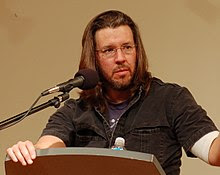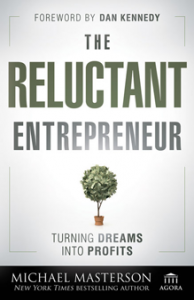My Three Favorite Pleasures

There was a time, when I was young, that I thought the only sensible objective in life should be to get the best ratio possible between pleasure and pain. Put more simply: to avoid everything that was difficult or even uncomfortable, while spending the maximum amount of time having “fun.”
But when boys become men, as St. Paul famously said, they must put away childish things. In my case, it was the pursuit of hedonism.
Well, it wasn’t exactly like that. Over many years, I gradually recognized that those things I thought would give me maximum pleasure (more money, more TV time, newer toys, nicer things) had surprisingly short shelf lives. And as I grew older and fell into doing – under mandates – those things that, as a child, I was trying to avoid (work and school, mostly), I discovered activities that gave me better and longer lasting pleasure.
In my twenties and thirties, I indulged in the working and learning experiences I enjoyed, while also seeking the more standard pleasures. But I noticed that if I spent too much time indulging in those (mostly social) pleasures, the good I got from them lessened – i.e., there was a point of diminishing returns.
Sometime in my forties, I began to become aware of the many ironies of life, including the fact that it is almost impossible to have more pleasure by trying to have more pleasure. The more you chase after it, the farther it moves ahead of you.
I’m not making an argument for asceticism. I still believe that it makes good sense to strive for a life that is more pleasurable than painful. I’m merely saying that once I realized that (a) I couldn’t have more pleasure by trying to have more pleasure, and (b) lots of things that I used to think of as difficult and/or painful could be very pleasurable indeed, I was able to look at this ratio from the perspective of my actual experience, rather than the images of pleasure manufactured to sell things.
I’ve been thinking about this for quite a while. At least 20 years. I’ve written about it, too, in books and essays, in which I sometimes tried to categorize the types of pleasure in terms of quality, durability, and so on. And that’s all been helpful – to me, if not to my readers.
Then, about a year ago, I was looking over some of those books and essays, trying to find a common thread. And I think I did. For me, there have always been three – and only three – good and worthy pleasures. They are:
* Working towards an objective I value.
* Learning about a subject I think is important.
* Sharing my knowledge and the fruits of my labor.
That’s it. Three. Working. Learning. And sharing.
Working
“We were created for meaningful work, and one of life’s greatest pleasures is the satisfaction of a job well done.” – John C. Maxwell
I discovered the pleasure I get from working before I understood that what I was doing was working. As a boy and through my teenage years, I enjoyed the normal boyish pastimes like playing sandlot football and sneaking into movie theaters. But my greatest pleasure came from working alone in the basement of my house, building miniature towns, choreographing war scenes with little plastic soldiers, and building real structures out of plywood to serve as forts and hideaways or as hospitals for injured birds and frogs and insects.
I also loved to start clubs. As an 11-year-old, I created the He-Man-Women-Haters club. In high school, I was president of a group of troublemakers in the guise of a fraternity.
Looking back on those activities, and comparing them to the things I did “for fun,” I see now that I preferred the building and organizing because they mattered to me in a way that playing sandlot football never could.
That’s still true today. I tried to retire three times in the last 30 years, and went back to work each time because I missed the deep and lasting pleasure of working on the many things I used to do that I truly cared about.
Working on things that I value. That was and still is key. (That’s why I write this blog.)
Learning
“The greatest pleasure is obtained by improving.” – Ben Hogan
I enjoyed school through fourth grade, but not again until I was in college. And even then, I didn’t always enjoy my classes. In retrospect, I can see that my favorites were those that I felt would somehow make me a more valuable person. And by valuable, I don’t mean financially valuable – knowing things or having skills that would earn me big money sometime in the future. Literature, anthropology, history, etc. were the kind of subjects that were valued in the house I grew up in. I think that’s why I got so much pleasure out of studying them.
I recognize how helpful it would be if I knew more about technical things. Like how to reset my watch. Or how to increase the bandwidth (or whatever it is) of my WiFi when I’m on important Zoom calls. And I’ve tried. I really have. But I just can’t persuade the judge in the corner of my brain that knowing these sorts of things will make me a more valuable person.
Sharing
“A writer’s greatest pleasure is revealing to people things they knew but did not know they knew. Or did not realize everyone else knew, too.” – Andy Rooney
I was talking to a friend last week about this little theory. He understood the pleasure I get from working on and learning about things I value. But he questioned me about the sharing. Sharing, he felt, is really just an obligation. A responsibility. Something you do out of a sense of duty, not as a potential source of pleasure.
“All I can tell you,” I said, “is that sharing what I have, whether it’s my house, my toys, or my money, is probably the truest pleasure I get. And it can be expressed in so many ways. In fact, when I first sat down to write this essay, I had a fourth activity on my list of good and worthy pleasures: teaching. But after thinking about it for five minutes, I realized that the reason I like teaching is because it is a form of sharing.”
I don’t know how to categorize what I’ve just written. Is it a manifesto? A sermon?
It doesn’t feel like that to me. I swear. It feels like sharing!




